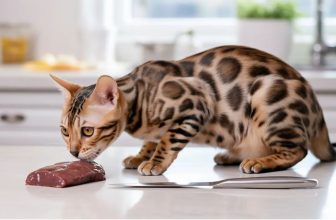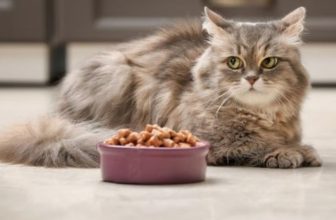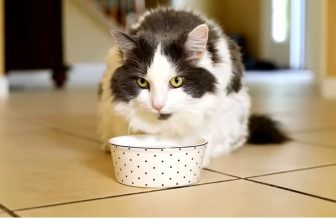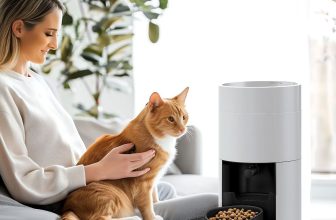Cat safe human food – The Best Guide

Cats are curious creatures, often drawn to the smell of whatever’s on your plate. But when it comes to cat safe human food, what’s okay to share—and what’s not? While some foods can be healthy treats, others may be harmful. This guide will help you understand which human foods are safe for cats and which ones to avoid, so your feline friend stays both happy and healthy.
Can Cats Eat Human Food?
Why Some Human Foods Are Safe While Others Are Toxic
Cats have different digestive systems from humans. While some foods provide essential nutrients, others can lead to digestive problems, toxicity, or even life-threatening conditions. Understanding which foods are safe and which are dangerous helps prevent health issues.

Understanding a Cat’s Nutritional Needs
Cats are obligate carnivores, meaning their diet primarily consists of animal-based proteins. Unlike humans, they require specific nutrients like taurine, which is found in meat. While certain fruits, vegetables, and grains can be offered occasionally, they shouldn’t replace a cat’s main diet.
Best Human Foods for Cats (Vet-Approved)
Protein-Rich Foods for Cats
- Salmon – A great source of omega-3 fatty acids, which support healthy skin and fur.
- Chicken – Lean and rich in protein, but should always be cooked and unseasoned.
- Turkey – Similar to chicken, turkey provides essential amino acids and is easy to digest.
- Eggs – Packed with protein and vitamins, but should be cooked to avoid bacteria.
Fruits Cats Can Eat
- Apples – High in fiber and vitamin C, but remove the seeds as they contain cyanide.
- Blueberries – Loaded with antioxidants and safe in small amounts.
- Watermelon – Hydrating and rich in vitamins, but remove the seeds.
- Strawberries – A tasty, vitamin-rich snack, but should be given in moderation.
Vegetables Cats Can Eat
- Spinach – Contains essential vitamins, but should be avoided if your cat has kidney disease.
- Pumpkin – Helps with digestion and is a great fiber source.
- Peas – Often found in commercial cat food, peas provide vitamins and fiber.
- Carrots – A good source of beta-carotene, but should be cooked to soften them.
Dairy Products Cats Can Have in Moderation
- Cheese – Some cats tolerate small amounts, but others may be lactose intolerant.
- Yogurt – Contains probiotics that can aid digestion, but should be unsweetened.
Safe Grains and Carbs for Cats
- Oatmeal – Rich in fiber and vitamins, but should be plain and cooked.
- Bread – Safe in small amounts as an occasional treat.
- Rice – A bland carbohydrate that can help with digestive issues.

Human Foods That Are Toxic to Cats
Dangerous Fruits and Vegetables
- Onions & Garlic – Can cause anemia and damage red blood cells.
- Grapes & Raisins – Highly toxic and can lead to kidney failure.
- Avocado – Contains persin, which is toxic to cats.
Toxic Dairy and Grains
- Milk – Most cats are lactose intolerant and may experience stomach upset.
- Chocolate – Contains theobromine, which is lethal to cats.
- Raw Dough – Yeast can expand in a cat’s stomach, causing serious health risks.
Harmful Meats and Fish
- Raw Fish – Can contain parasites and lead to a thiamine deficiency.
- Processed Meat – High in sodium and preservatives that can be harmful.
- Fatty Cuts – Can cause pancreatitis and obesity.
How to Introduce Human Food to Your Cat

Portion Control and Frequency
Human food should never replace a cat’s primary diet. Instead, offer small portions occasionally as treats. Too much can lead to weight gain and nutritional imbalances.
Signs of Food Intolerance or Allergies
After feeding new foods, watch for signs of vomiting, diarrhea, itching, or lethargy. If any symptoms appear, stop feeding the food and consult a vet.
Preparing Human Food Safely for Cats
- Always cook meat thoroughly to kill harmful bacteria.
- Avoid seasoning, salt, and oils.
- Cut food into small, bite-sized pieces.
Homemade Cat Food Ingredients – Is It a Good Idea?

Pros and Cons of Making Cat Food at Home
Pros:
- Control over ingredients
- Avoid artificial additives
- Customizable for specific dietary needs
Cons:
- Requires careful balancing of nutrients
- Can be time-consuming
- Risk of nutrient deficiencies
Safe Homemade Recipes for Cats
- Cooked Chicken & Pumpkin Mix – A simple, high-protein meal with fiber.
- Salmon & Rice Bowl – Provides omega-3s and easily digestible carbs.
- Egg & Carrot Mash – A nutritious, easy-to-digest meal.
Final Thoughts – What’s Best for Your Cat?
While some human foods are safe for cats, they should be given in moderation and as a supplement to a balanced feline diet. Always check with a vet before introducing new foods and prioritize high-quality commercial cat food for optimal health.
Questions & Answers: Cat Safe Human Food?
Q1: Can cats eat cheese?
A1: Some cats can tolerate cheese, but many are lactose intolerant. If you want to offer cheese, do so in tiny amounts and watch for any digestive issues.
Q2: Is peanut butter safe for cats?
A2: Peanut butter isn’t toxic, but it’s high in fat and can cause digestive problems. Also, some brands contain xylitol, which is dangerous for cats.
Q3: Can cats eat raw eggs?
A3: No, raw eggs can contain salmonella and interfere with vitamin absorption. Cooked eggs are a safer option.
Q4: What human food can cats eat daily?
A4: Cats should stick to their regular diet, but small portions of cooked chicken, turkey, or a few pieces of fruits and veggies (like pumpkin or blueberries) can be safe daily treats.
Q5: How do I know if my cat is allergic to human food?
A5: Look for signs like vomiting, diarrhea, skin irritation, or lack of energy after feeding a new food. If symptoms appear, stop feeding that item and consult your vet.
This guide ensures your cat gets the best nutrition while staying safe. Always consult your vet before making major dietary changes, and remember your feline friend’s health comes first!







